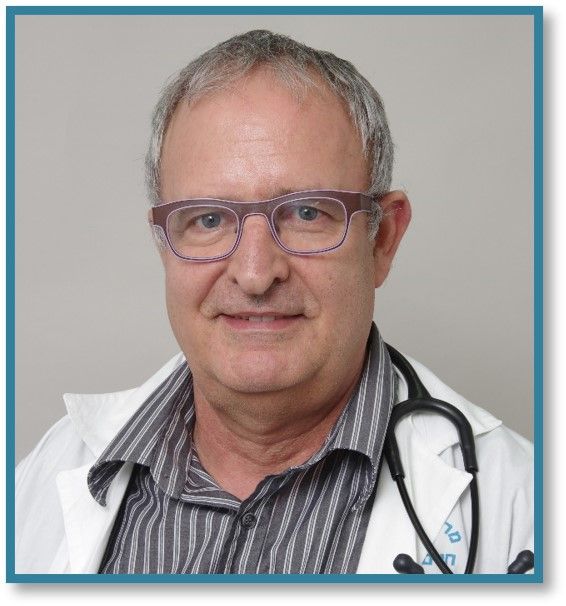Itzchak Levy, M.D., is one of Israel’s top HIV clinicians. He led research showing that people living with HIV responded well to the COVID-19 vaccination.
Itzchak Levy, M.D., specializes in infectious diseases and founded the first and only Israeli AIDS hospice in the early 1990s. When the prognosis of HIV improved, he opened an outpatient clinic and turned the hospice into a rehabilitation center for AIDS patients.
During the early 2000s, the rehab center closed when he saw the patients could be treated in general rehabilitation centers.
In parallel, Levy volunteered as a medical advisor for the NGO Israel Aids Task Force and established the HIV/AIDS Center at Sheba Medical Center in Ramat Gan, which is just outside Tel Aviv. In 2000, he established the Israeli Society of HIV physicians and served as its director for eight years.
Over his career, he has been involved in HIV research and has published more than 50 studies in the field.
Levy spoke with Managed Healthcare Executive® about the latest trends in HIV research and care.
How would you characterize the research being done in 2022 compared to 5-10 years ago? What inroads are we seeing?
In recent years, HIV research focuses much more on developing a cure, vaccination and improvement of quality of life. Since we now have great treatment options that contribute to normal life expectancy, it is very important to improve quality of life and prevent comorbidities.
For example, treating with injectables which can be administered once every few months may enhance quality of life. Cure and vaccination are closer than ever and much research focuses on it. For example, mRNA vaccines are being tested to overcome the obstacles of vaccination against HIV by allowing the body to build a good immunological response against a virus which constantly changes and requires a wide range of antibodies to overcome it.
Can you point out some notable advancements we have seen over the last year.
As a clinician, the introduction of injections that only need to be administered once every other month is a great advancement in simplifying treatment. There is a lot of advancement in the understanding of the reservoir of the virus in the body which is so important in developing a cure. Each generation of drugs that are developed is safer and more effective.
What do you feel has been the biggest game-changer in recent years?
Biologically, the biggest game changer in the last two decades was the introduction of integrase inhibitors which make the anti-retroviral therapy much more effective, safer and more tolerable than what we had before. I am sure that the introduction of this drug family contributed a lot to the normal life expectancy and high quality of life we now see. Sociologically, I think the biggest game changer was the results of the partner study which showed that “U=U” (undetectable viral load is untransmissible) and the introduction of preexposure prophylaxis (PrEP). Those two things contributed mainly to stigma reduction which is so important in fighting this epidemic.
Where is the focus on today’s studies concerning HIV matters?
There are now many co-epidemics of interest. COVID-19 plus HIV for one. It is now well established that PLWH (people living with HIV) with a good immune system will have the same course as a COVID patient without HIV, but those with immunosuppression (CD4 count less than 200) are at increased risk for complications and death. We also know that the immune response to vaccination (immunogenicity) is almost like what we see in non-HIV persons but may wean faster.
Sheba Medical Center was the first to do a COVID vaccine trial among PLWH and showed good reactogenicity. We are now continuing to follow our PLWH.
We see a lot of STDs (sexually transmitted diseases) among patients receiving PrEPand try to figure out what is the best way to decrease their rates. We are doing in the clinic a lot of research concerning STDs and mycoplasma genitalium resistance studies.
Discovered on: 2022-07-06 13:59:00
Source: A Conversation With Itzchak Levy, M.D., Director of the HIV/AIDS Center at …



